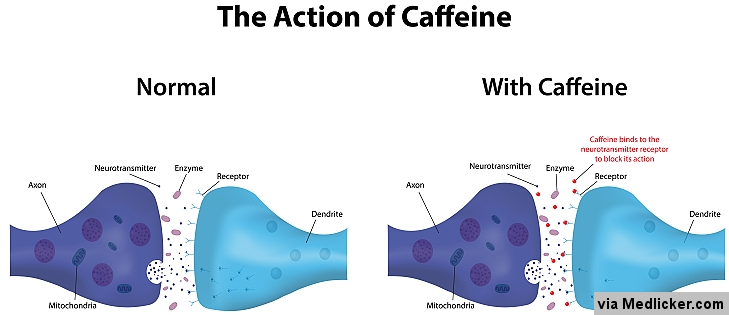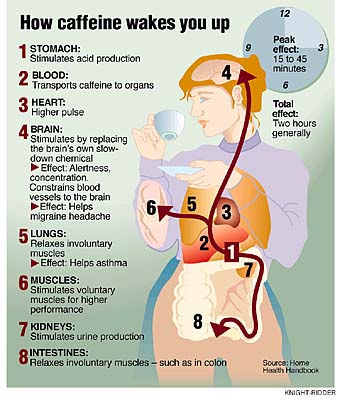Caffeine has been known to have a bad reputation in some situations. Many people have suffered heart attacks as well as migraines due to caffeine consumption. I have tried to advise my friend Ashley that she should stay away from excessive amounts of caffeine, mainly because caffeine can be more damaging to her health and could increase her insomnia more than she would like. Although I do understand that many people require caffeine to become a functioning adult throughout the day, I would have to inform her that consistent consumption can force her to lose more sleep at night, and would require her to consume more caffeine throughout the day to maintain normalcy.

“The hunt to identify the brain regions sufficient and necessary for the induction and maintenance of sleep behavior has been ongoing for many years. This search has been met with limited success because while there are many brain areas that show sleep modulated activity, no single brain area is necessary for sleep” (National Center for Biotechnology Information).
So even though we do know that ATP (adenosine triphosphate) is one of the most important compounds found within out biology, mainly because of its ability to transfer energy to cells, we still do not know what controls and regulates sleep.

Caffeine, is a byproduct of plants that is found in tea, coffee, and cocoa powder, is a CNS stimulant drug because it increases energy metabolism throughout the brain. But, at the same time it decreases cerebral blood flow. Other CNS stimulant drugs are amphetamines, cocaine, crack and some inhalants like Amyl or Butyl Nitrites. Caffeine does seem to be the milder of most, and a lot more socially acceptable than the others. Caffeine is also more accessible than the others because there are no laws against consumption even though some cities and counties ban the consumption of sugary drinks for youth a certain age and younger. However, just about anyone can just walk right in to the store and purchase a soda, coffee, and/or a tea. Caffeine does affect your sleep by releasing adrenaline in the body so that it, as well as your brain, will remain alert and active.
Caffeine can and may have some adverse effects to those whom consume it. “Caffeine can cause insomnia, nervousness and restlessness, stomach irritation, nausea and vomiting, increased heart rate and respiration, and other side effects. Larger doses might cause headache, anxiety, agitation, chest pain, and ringing in the ears.” (CAFFEINE: Uses, Side Effects, Interactions and Warnings).
Also, because of caffeine’s addictive nature, if you decide to suddenly stop ingesting caffeine you may experience withdrawal symptoms. There can be some good effects of caffeine as well. For instance, caffeine increases your attention span, memory performance, and has also shown to be comprised of antioxidants. Antioxidants help the body to repel free radicals that are responsible for many illnesses.

The role of the hippocampus in the brain deals with long term memory and shortterm memory. Korkotian and Segal chose this part of the brain for their study of effects of caffeine on the brain because they wanted to study and see how caffeine affects the learning and memory process.
Caffeine does have a lot of beneficial as well as adverse effects on the body, and caffeine addiction can and will be experienced differently by everyone since we all different and react differently to caffeine. As long as you use caffeine in moderation, and do not overdo it, the adverse effects on your body should not affect you too much.
